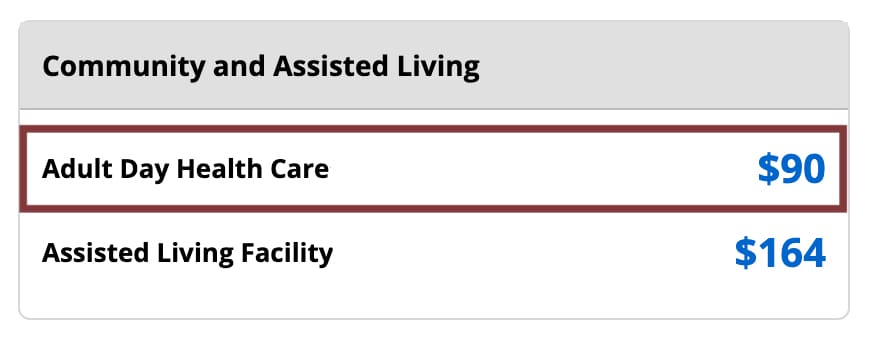Intro
Adult daycare is a win-win: caregivers get a well-deserved break (respite care) while loved ones leave the house for needed stimulation. Everyone needs a break from time to time.
This may remind you of that jingle from the Kit Kat commercials in the 80s: "Give me a break... break me off a piece of that Kit Kat bar." If you don't remember, here's an old 30-second ad.
This affordable and flexible form of long-term care can be a nice option to incorporate into your "LTC" goals: Learn about options, Talk with family, and Create a plan.
Post jargon
ADLs (activities of daily living): basic tasks like bathing, dressing, eating, transferring, toileting, and continence
LTC: long-term care
LTCi: long-term care insurance
MedicAID: healthcare public assistance
Medicare: health insurance for 65+ adults and disabled
respite care: ("res-pit") short-term senior care to provide relief for caregivers
➡️ Explore all the LTC jargon
What is It?
With over 4,600 adult day care centers across the U.S., these programs provide a safe space for seniors to enjoy meals and engage in activities like crafts, games, day trips, or light exercise.
This setup allows seniors to live at home and stay active during the day—helping both caregivers and care recipients avoid cabin fever.
These activities help seniors maintain social connections, stay mentally active, and remain physically engaged.
Do they provide LTC?
Yes, most adult day care centers support activities of daily living (ADLs), medication management, and health services like hearing checks.

Here's a quick breakdown of services offered:
- 80% have nursing professionals on staff.
- 50% offer physical, occupational, and/or speech therapy.
- 80% provide memory training programs.
Although it's not 24/7 solution, adult day care provides great daytime support for those who need it.
When’s the right time?
It’s a great choice when you or your loved ones need extra help during the day or if caregiving becomes overwhelming.

It’s a nice middle ground, offering support for both caregivers and care recipients while keeping things independent. It might be a good fit if you or your loved one:
- Can’t safely be left alone.
- Has trouble structuring the day.
- Needs more companionship.
- Lives with someone who is often away.
It can be a good option for those with cognitive impairments like dementia or for isolated, homebound seniors who benefit from social interaction and light physical activity.
Costs
At about $100 a day, adult day care is more affordable than a home health aide ($200) or assisted living ($180). Some places even offer drop-in options, so it’s easy to fit into your schedule.
Check out this cost calculator to get a sense of local costs. For example, the average cost of adult day care in Denver, Colorado, is $90/day.

Payment options
Most adult day care is paid for through personal savings or long-term care insurance.
- 🔴 Private health insurance doesn't cover adult day care.
- 🔴 Medicare doesn't pay for adult day care.
- 🟡 MedicAID only helps if you have a severe financial hardship or a disability.
- 🟢 Long-term care insurance covers adult day care.
Find one
Adult daycare centers aren’t as common as assisted living or nursing homes.

You can start your search with online resources:
- NADSA
- Care.com
- Eldercare Locator
- An online search for "adult daycare near me"
After checking them out online, be sure to visit in person—tour the centers, ask about activities, and see how the staff interacts with participants.
Wrap up
If an adult daycare center is in your area, it can be a great option for seniors to maintain social connections, stay mentally active, and remain physically engaged.
When a caregiver or senior says, "Give me a break... from that in-home care," adult day care can be a flexible and affordable solution.
Sorry, weak joke. Don’t forget to tip your server on the way out.







